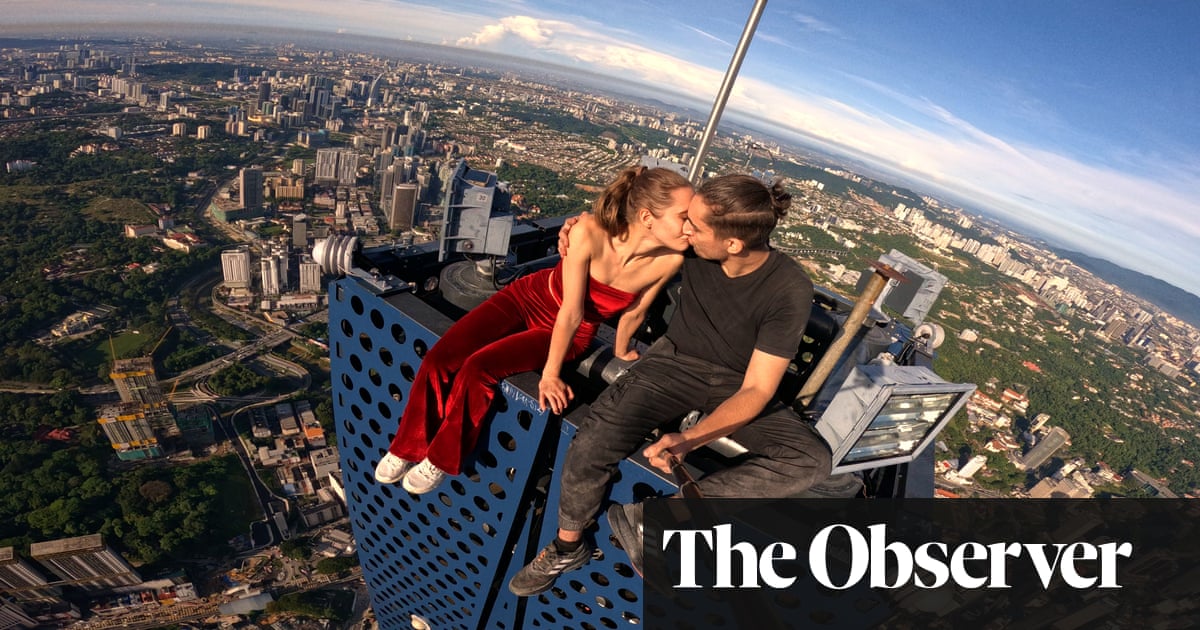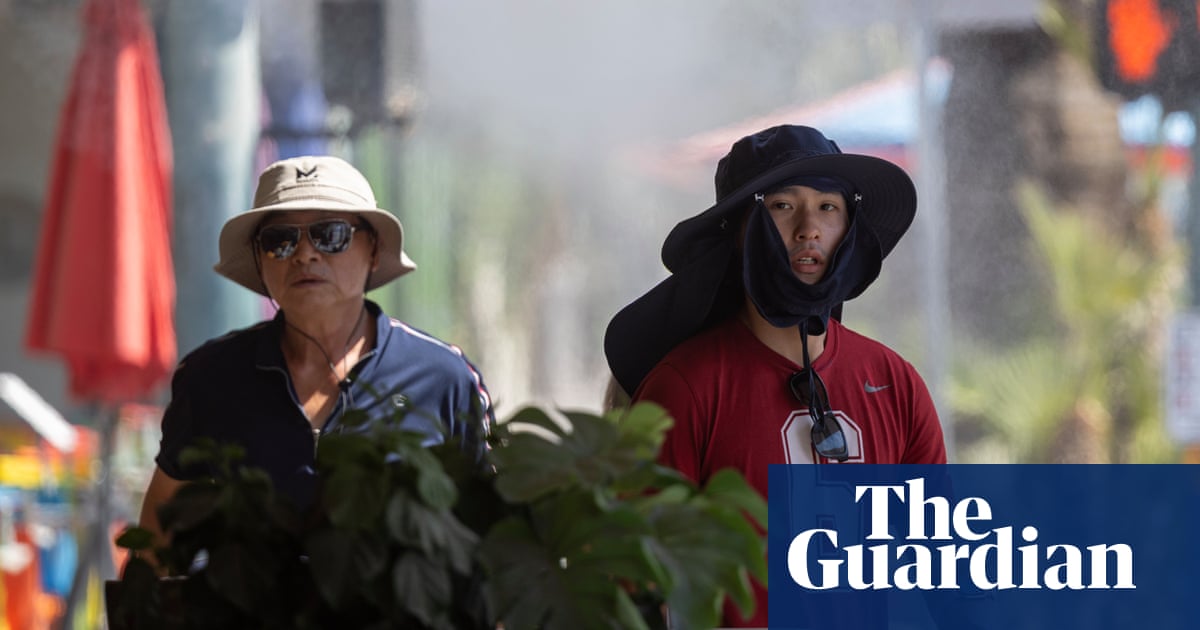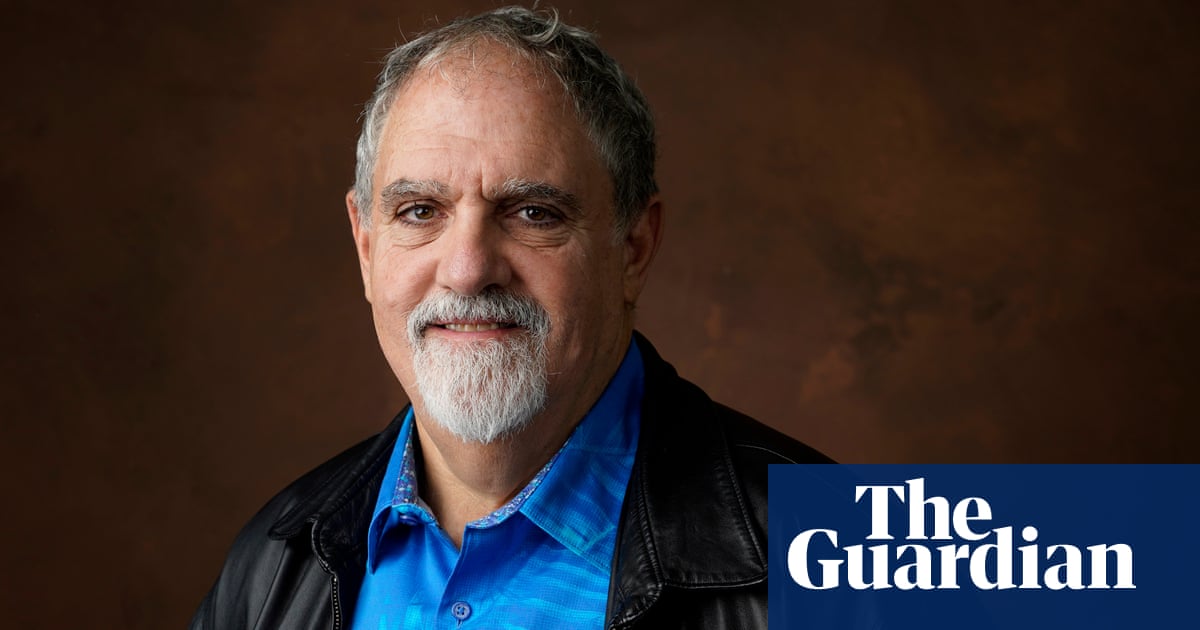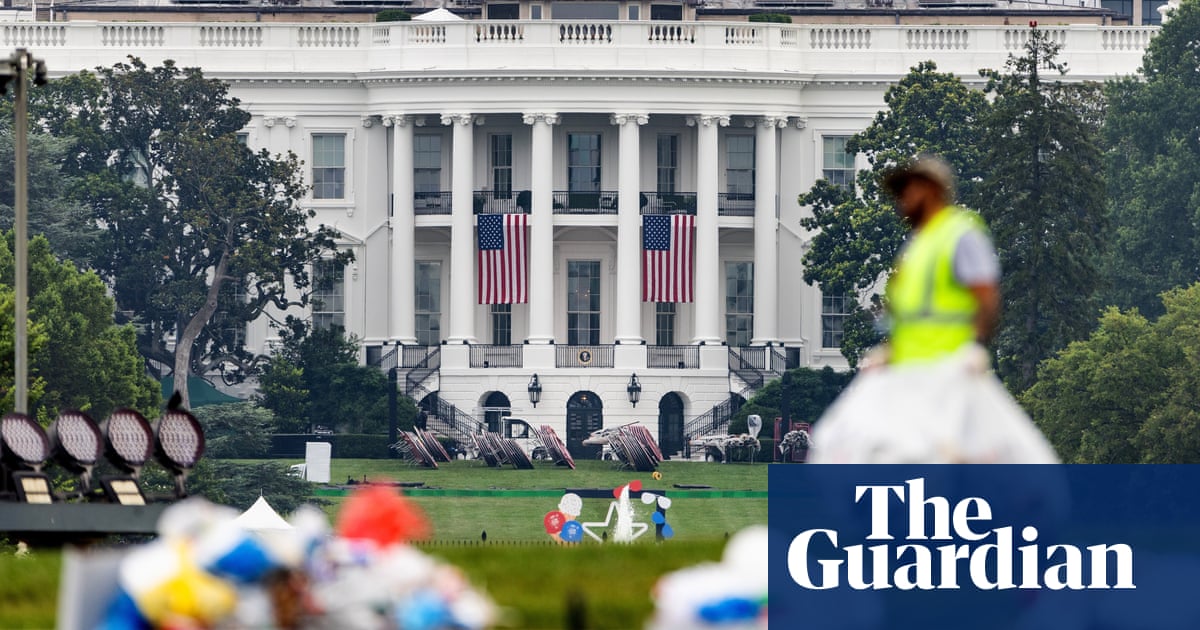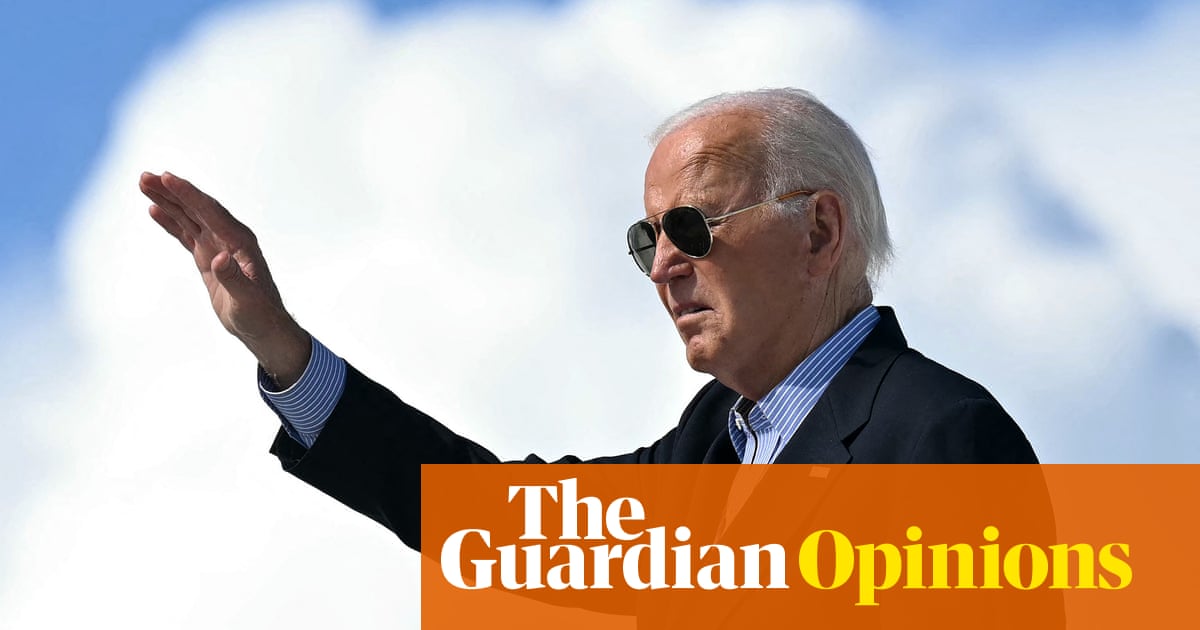âThis film contains extremely dangerous and illegal activities. Do not attempt to imitate.â Those words flash up on the screen at the start of Skywalkers: A Love Story, the most vertigo-inducing documentary you will see this year.
It tells the story of two Russian ârooftoppersâ, Angela Nikolau and Ivan Beerkus, who find fame by scrambling to the top of the worldâs tallest buildings and posing there, without harnesses or safety nets, taking photographs and films to post on social media to incite wonder and admiration. On their way up a construction crane on the tower of Goldin Finance 117 in Tianjin, China, they begin to fall in love.
The film, artfully shaped by director Jeff Zimbalist, himself a former rooftopper, culminates in their attempt to climb the Merdeka skyscraper in Kuala Lumpur, all 118 storeys of it, its metal spire reaching 2,227 feet into the sky. It is the worldâs second tallest building and when Nikolau and Beerkus broke through its security on the night of the World Cup Final in December 2022, it seemed a fitting challenge for their sky-scraping skills.
The climb, at first inside the buildingâs semi-finished interior and then perilously up the fragile spire at the summit, has all the tension of a thriller. But it is also deliberately presented as a chapter in their relationship, a symbol of the need for trust between two people as they struggle to balance on a thin girder so he can lift her horizontally in the air, floating gracefully in a shimmering red dress.
Drones and selfie sticks record this astonishing image, and their unbelievable bravery. Sitting on a sofa in Netflixâs office in New York and recalling the feat, Beerkus preserves a sense of wonder. âUsually when I go on the roofs I feel adrenaline and a sense of accomplishment that I have conquered something,â he says. He is talking in rapid Russian with the filmâs co-director, Maria Bukhonina, as translator. âBut it was different with Merdeka because by the time we made it to the top, I knew we would achieve our goal. I was experiencing a strange calmness and quietness. I was so focused.â
Nikolau recalls the sensation of his hand on her stomach, holding her aloft. âIt is kind of like riding a horse,â she says, making him laugh. âYou connect into one, you have this unity. I could hear only my own breath, not the traffic below or the wind. It was a moment of complete harmony.â
She winds her arm around his, and he kisses her hand gently. Watching the film, itâs possible to suspect that this relationship is a means of turning a documentary about an outlawed physical activity into a narrative with broader romantic appeal. Seeing them in the flesh, as they launch Skywalkers at the Tribeca film festival, itâs harder to be cynical. Their affection and warmth for one another is palpable.
Sheâs tiny and muscular, wearing a miniskirt, fluffy black shoes that make her feet look like giant pandas and a hat with ears that turns her into a pretty cat. She moves a lot, smiling and giggling. Heâs a gentle, more watchful presence, with a sweetness that balances her liveliness.
The contrasts between them emerge as they explain what drove them to the rooftops in the first place. Nikolau is the daughter of trapeze artists, and grew up in a circus, learning ballet and acrobatics from childhood. Her growing up was scarred by her motherâs depression after her father abandoned them. âI went searching for who I could become,â she says.
She discovered rooftopping when she ran away from her mum at an event where she was bored. âI started looking around and saw a staircase leading up. I pretended I was going to the bathroom and instead headed for the roof. It was exciting, but also I had a pang of fear. I didnât know whether that was because of the height or because my mother would be angry. Later, I decided to push through the fear. I wanted to have that feeling of being up on a roof.â
Beerkus headed for the heights because he didnât fit in on the ground. âIn Russia, some guys would break into rooftops to get away from the adults and drink,â he explains in the film. âI didnât do much drinking, but I did start exploring. The higher I went the easier it was for me to breathe.â When we talk in New York, he adds: âWhen I was a teenager there was a moment where I was lost in life. I didnât know who I was; I couldnât find my place. Then I saw a picture taken from the rooftop of a building and was interested. I started moving around and trying out smaller buildings and then going higher and higher and then I joined the fraternity of rooftoppers in Moscow. We started competing with each other.â
In 2014, an article in Rolling Stone talked about the Moscow âroofersâ, describing them as a âloose-knit group of insanely non-acrophobic daredevils who scam and sneak their way to the tops of Russiaâs highest buildingsâ. Instagram and YouTube turned them into more than thrillseekers. Their photographs and GoPro videos made them social media stars, able to attract subscribers and sponsors. The subculture of seeking out extreme urban adventure is a worldwide phenomenon, but had particular traction in Russia where, as one of the rooftoppers explained: âWhen you are in the west and go over a fence, passersby react nervously⦠When you do something illegal in Russia, you can do anything unless you start to beat someone up⦠We have a society that doesnât care.â
Beerkus was always a little different. He made his reputation by climbing all the Stalin-era buildings topped with stars, gathering an amazing 200,000 followers on Instagram. âIn Russia that was unheard of,â says Nikolau, laughing. âHe was at god level. Thatâs when I noticed him. I had my eye on him.â She was trying to break into the male-dominated rooftopping world and had been rebuffed. âI began to flirt with him a little bit on Instagram and to try to intercept him on some of the climbs.â
The two finally met when Beerkus approached Nikolau to join him in climbing Goldin Finance, an adventure that had been sponsored by a travel company. He needed to find the most extreme female rooftopper â âand the most beautiful oneâ, he adds, gallantly â to clinch the deal. âHis text was very businesslike,â she says. âBut as soon as I read it, I said yes.â
At that point, she was already being followed by a camera crew who were making a documentary about dangerous sports in eastern Europe. The footage shows the coupleâs first meeting on a train, where they discuss the venture. âSparks were flying but we didnât admit it to each other,â Nikolau says now. âBut then we went to Hong Kong together. There was a typhoon warning, but we decided to venture out, and Ivan showed me some rooftops. When we climbed up there, he took my hand and I knew.â
Skywalkers shows her battling with her doubts about the relationship, yet in person itâs clear just how much she has invested in their partnership. âI knew I could survive on my own, but itâs better with him. I had to give in to that and choose that path,â she says. Beerkus smiles: âSometimes I feel I am a hostage, but I donât mind,â he says with a laugh. âBut I like to think that the film shows that if you stick together as a couple and keep helping each other through the obstacles, you get where you are going. It was a choice to listen to each other, forgive each otherâs faults, and push through together.â
Beerkus plans each ascent meticulously, scouring the internet for plans and information about the buildings. Safety is always at the forefront of his mind and so is security. He has been arrested multiple times and the documentary records their panicked descent from Notre Dame where they are arrested and put in a cell overnight.Everything is caught on camera, including a row at the top of a frighteningly fragile spire, where she moans that there is no point in doing all this if he canât take better photographs of her legs.
As they organised their attempt on Merdeka, he calculated the timing â he knew the guards would be watching the World Cup final â and the logistics of each stage of the climb. The fact that things go wrong and they end up hiding for 36 hours adds to the tension, but doesnât disrupt their intent. Nikolau adds the creative touches: the acrobatic movements, the fact that he wears black and she is in red against a backdrop that they know will be blue and grey. âI was a support mechanism for this beautiful flying figure.â
The pair see themselves as artists, not just as climbers. Many of their friends from the Moscow rooftoppers community are now dead. âItâs hard to talk about because they are people we had known for years,â Nikolau says. âBut we feel we are a little different in our approach. Many of those who died were pushing for a specific physical stunt like hanging on one arm or doing parkour-style stuff. We would never do that. We donât take physical risks for the sake of it. We want to create images that are beautiful and unusual.â
The results are striking, two human figures pinned against the sky, the ground very far beneath. In the film, the cameras swoop and soar to give a vertiginous feeling of falling; on Merdeka, the couple intentionally organised a shot that would dive down the narrow shaft to share the compulsive yet terrifying sensation of descent. âItâs a very weird feeling. We have learned not to give in to it. You mustnât look down, you must look forward,â says Nikolau. âItâs like in ballet where to do a pirouette you need to tie your gaze to a fixed point. You need to look at the horizon.â
On the ground, the couple, now both 30, have faced adversity. Covid stopped them in their tracks; the Ukrainian war darkened the landscape in their home country. Nikolau was questioned as part of a roundup of people who knew the rooftopper Vladimir Podrezov who painted a star on a skyscraper on Moscowâs Kotelnicheskaya Embankment in the colours of the Ukrainian flag. They now live in Bangkok and are planning to move to the US. They make money from selling photographs of their endeavours as NFTs.
In the 18 months since they tackled Merdeka, they have diversified. Beerkus is a musician, Nikolau an artist who has also appeared in films. But they have no intention of stopping their aerial pursuits. âWe are not anticipating quitting any time soon,â says Nikolau. âMaybe when we are 75.â Beerkus doesnât look entirely convinced. But itâs noticeable how he relaxes as soon as he talks about standing on top of the world. âItâs 100% easier than life on the ground,â he says.
